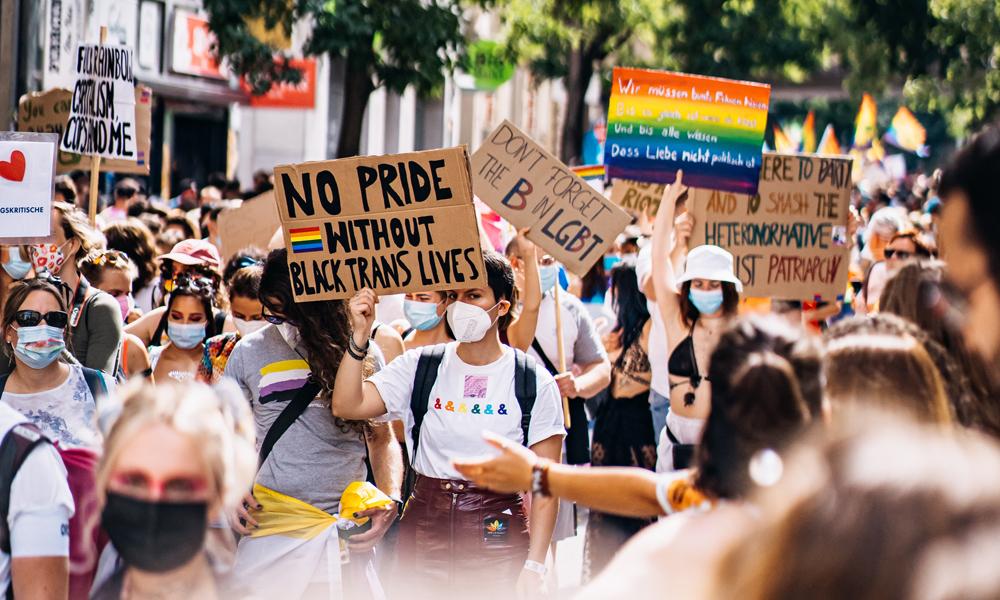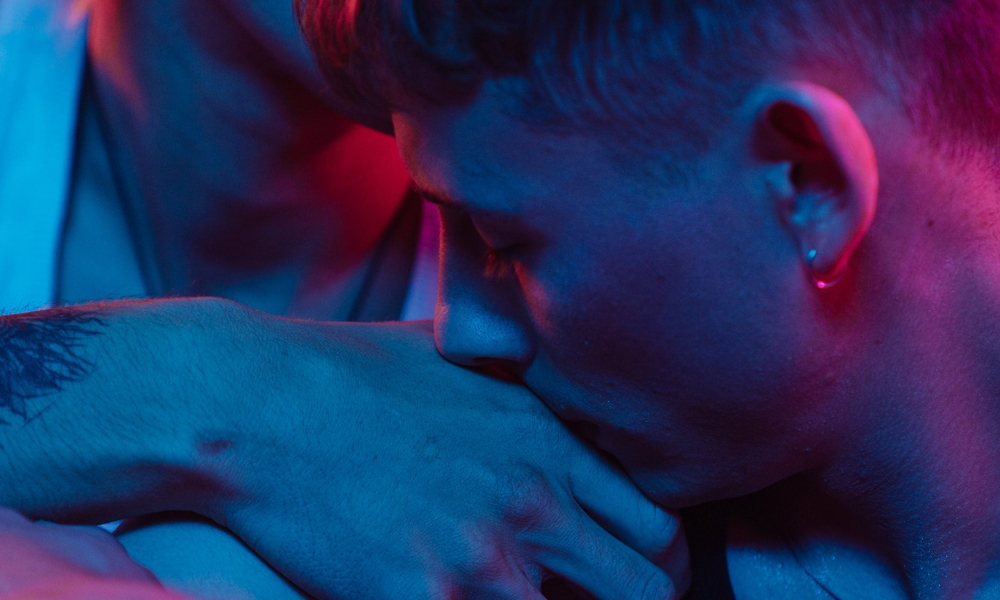Queer people owe a lot to trans communities and activists for their leadership in the liberation movement…
By Luis Augusto Nobre
I have been reflecting on my identity and how I interact with other members of the 2SLGBTQIA+ communities. It has been getting more intense as Pride season approaches, and I witness all the movements to celebrate queer and trans people, whether by community engagement or pink-washing/rainbow-washing. This last one is not exclusive only to some brands and businesses that use the colourful approach to take our pink money – some community members also endorse the superficial practice and exclude other identities from our acronym umbrella.
We cannot deny that the majority of the campaigns and visual initiatives targeting 2SLGBTQIA+ people focus on white cis-gay men and contribute to perpetuating several stereotypes. The other letters in the acronym turn out to be less relevant or are barely mentioned. However, one group representing a significant and representative identity experiences more backlash and violence than all the other letters combined: the trans community. ies.
The current wave of conservative and discriminatory legislation and activism in several countries, including Canada, is increasing the life-threatening risks for members of LGBTQIA+ communities worldwide. This wave also includes transphobic trends in countries such as the United Kingdom and the United States. In our southern neighbour, there are almost 500 new anti-trans bills in 47 states that have targeted trans communities and created an internal diaspora. A campaign to offer asylum to queer and trans people in Canada was developed, and both the UK and the US are listed as some of the most dangerous places for trans folks.
Queer people owe a lot to trans communities and activists for their leadership in the liberation movement, including the famous Stonewall Riots in 1969. The three key names from the rebellion against oppression aren’t from the G communities. Trans icons Stormé DeLarverie, Marsha P. Johnson and Sylvia Rivera are considered the leaders of that June 28 event, when queer and trans people fought for their rights against the New York Police. Many of us don’t remember or recognize all the advances in protecting our rights that have been gained by trans activists, who have been experiencing hate and are responding with love for themselves and others.
One great example of our lack of memory is related to the 2023 Hershey’s Her For She campaign, associated with International Women’s Day. Fae Johnstone, a trans activist and the executive director of Wisdom2Action, was one of the five young leader women, all of whom are engaged in social impact initiatives, who were featured in the chocolate company’s campaign. The discriminatory and hateful messages on social media that resulted from this campaign escalated to levels of physical threats…including many from our communities. Johnstone has been responding with love, and has received support from people who know the importance of visibility and recognition in promoting human rights.
For a long time, a number of individuals from the letters G and L have felt superior to the other letters in our rainbow acronym. They try to create a social media movement that excludes others based on gender identity, gender expression and sexual orientation. I have witnessed bias and prejudice against bisexual people. One example is how bisexual men face double discrimination from gay men, where their sexuality is not genuinely respected. Many are told that they are hiding and being cowards, using bisexuality as an excuse to stay in the closet. Another one is even more complex. Bisexual women experience discrimination and systemic barriers, as reflected in their pocket: a straight man pulls in, on average, twice the annual salary ($55K/year) as a bisexual woman ($26K/year).
This may be a bad comparison, but the discrimination within 2SLGBTQIA+ communities is similar to women saying they have all their rights so they don’t need feminists. It attests to the ignorance of the historical process and the fight for gender equality. The imbalance between men and women in workplaces encompassing salaries and leadership roles remains high, not to mention other aspects such as harassment and violence. The more intersectional lenses we use, the more gaps and disparities we will find.
It is why many members of our 2SLGBTQIA+ communities end up living and working in unsafe spaces or underemployment – because the behaviours of some folks endorse discrimination and harassment. They have to hide aspects of their lives to reduce the received harm, and in the hope they can remain invisible to bullies. Although this is an ordinary reality, some not only come out but also open up so that others can thrive. Their decisions positively impact business and entrepreneurship because they spread awareness about diverse identities and pursue a sense of belonging.
When we say that trans rights are human rights, we want to highlight all the necessary steps to ensure that trans individuals are safe and protected under the law and best practices. We want to celebrate them and admire their beauty, wisdom and leadership. They are some of the most vulnerable people at the same time as we see their courage, love and willingness to live their authentic selves. Our queer history is full of examples: the above-mentioned Stonewall is just one.
So, dear member of the letters G and L, next time you might think about not recognizing the importance of the other letters of our acronym – especially the letter T – be aware that we owe them the freedom, liberation and rights we have all gained so far. They are walking with a target on their backs, and we have a duty to protect them wherever and whenever we are, even if they aren’t in the room. Be inspired by the poem “First they came …” by the German Lutheran pastor Martin Niemöller (1892–1984), which also inspired the German playwright and poet Bertolt Brecht: “Then they came for me, and there was no one left to speak out for me.”
LUIS AUGUSTO NOBRE is the senior communications coordinator of Pride at Work Canada/Fierté au travail Canada, a leading national non-profit organization that promotes workplace inclusion on the grounds of gender expression, gender identity and sexual orientation. For more information, visit prideatwork.ca.







POST A COMMENT